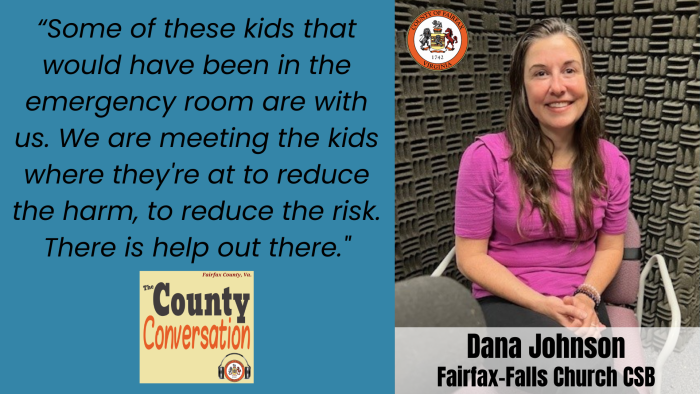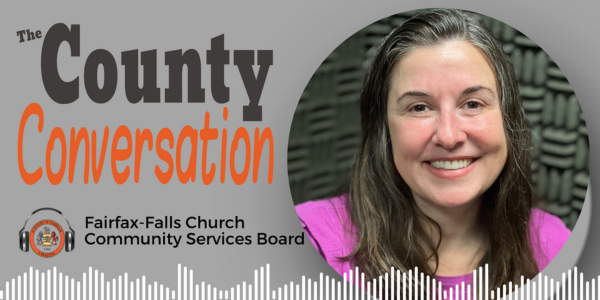What is the Community Services Board?
Virginia has 40 community services boards spread across the state. Every person in Virginia lives in an area served by a CSB. These boards provide safety net services for people who need help with mental health, substance abuse or developmental disabilities.
The Fairfax-Falls Church Community Services Board serves local residents. People can walk into the Sharon Bulova Center (formerly called Merrifield) Monday through Friday during business hours. Emergency services are available 24/7 for people in crisis.
The CSB also provides therapy, case management and developmental disability services. Staff can help people sign up for health insurance and food benefits too.
Bringing Services to the Community
In 2020, the community asked for more help for kids overdosing on fentanyl. In response, our Department of Neighborhood Community Services (NCS) placed mental health services in community centers. Now kids can see a psychiatrist or therapist in the same building where they play basketball or do arts and crafts.
“When people are going to a community center [already], they can just go down the hallway and meet with their psychiatrist or their therapist,” Johnson said. “So, it really shifts that perspective of maybe going into an old fashioned type of setting where you’re going to see your doctor and your therapist.”
One office at the James Lee Community Center in Falls Church shares a window with a basketball court. Most of the kids getting help at the Herndon site walk to their appointments. Many of these families couldn’t make it to the traditional therapy site in Reston often enough for treatment to be effective.

Youth Medication Assisted Treatment Program
The Youth Medication Assisted Treatment program started with funding from opioid lawsuit settlements. It helps kids ages 12 to 22 who have opioid addiction problems. The program recently expanded from serving only 12 to 18-year-olds.
Kids in the program get medications like Suboxone, Naltrexone or Vivitrol, which help with withdrawal symptoms and cravings. The program also offers individual therapy, group therapy, family support and care coordination.
One big difference: the program will pay for cab rides to appointments. This removes a major barrier for families who don’t have cars or reliable transportation.
The program has peer support staff who have lived through addiction themselves. Many kids don’t want to talk to doctors or therapists at first, but they connect with peer supporters.
To get into YMAT, kids need to be Fairfax County residents with a primary diagnosis of opioid use disorder. The program charges based on income, so uninsured families with low incomes pay less.
What’s Next
The CSB is working to expand YMAT services to other community service boards in the region. Region 2 includes Fairfax, Arlington, Alexandria, Loudoun County and Prince William County. This expansion would help even more kids in Northern Virginia get the treatment they need close to home.
For more information about CSB services, visit www.fairfaxcounty.gov/community-services-board.
The County Conversation Podcast
The “County Conversation” is a podcast featuring employees and subject matter experts from the Fairfax County Government discussing programs, services and items of interest to residents of Fairfax County. Listen to past episodes of “County Conversation.” To find other county podcasts, visit www.fairfaxcounty.gov/podcasts.





 SIGN UP FOR DAILY EMAIL HEADLINES
SIGN UP FOR DAILY EMAIL HEADLINES